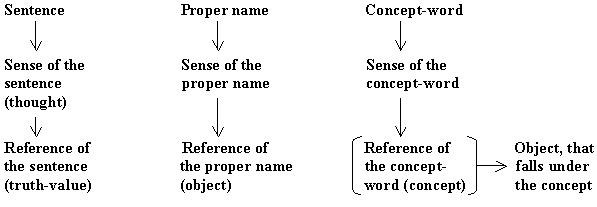
I think that there’s a problem with your use of the word “meaningless”, as in
“’God exists’…is meaningless."
“God exists” has a meaning; or, at least, it makes sense. You may of course be using the word “meaningless” in a specific and precise technical sense. (Though there are very many rival philosophical conceptual schemes, as you know.)
For example, “God exists” may be meaningless because it can’t be verified (in the language of certain early logical positivists) , or it makes no difference to experience (in the language of certain pragmatists), or it has no observational consequences (in the language of Carnap). In that case, it may be better to say that the expression “God exists” is, at best, philosophically problematic, or, at worst, logically incorrect. Again, I don’t think that it is meaningless.
Some philosophers, for instance, say that
“God exists.”
Is equivalent to or means
“Godhood is instantiated.”
But “God exists” doesn’t seem to mean that at all. It may be the case that the statement “God exists” should be “Godhood is instantiated” if it’s to be philosophically coherent and acceptable. But “God exists” simply doesn’t mean “Godhood is instantiated”. The statement “God exists” means God exists, in a manner of speaking. Similarly, perhaps “Godhood is instantiated” isn’t even the correct “logical form” of the “surface grammar ” either
The distinction to be made is that when a philosopher says that “Godhood is instantiated” (or another version) is equivalent of or means God exists in correct logical grammar, or that it is equivalent to it, he is doing, alternatively, normative, or stipulative, or revisionary (or even “transcendental”, according to Stephen Yablo) metaphysics. That is, the philosopher who opts for “Godhood is instantiated” rather than “God exits” isn’t doing “descriptive metaphysics”.
These two terms, “descriptive” and “revisionary metaphysics”, are taken from Strawson (though the idea isn’t exclusively his). This is what Strawson himself wrote in his well-known book Individuals:
“Descriptive metaphysics is content to describe the actual content of our thought about the world, revisionary metaphysics is concerned to produce a better structure.” (page 10)
For example, take your reference to “red exists” (seemingly a reference to a universal). We can have
“Red is a colour.”
parsed (or analysed) into the nominalist
“Red things are coloured.”
according to one revisionary metaphysical scheme (to be argued for). Or we can have
“Red is a colour.”
parsed (or analysed) as
“Reds are colour tropes.”
according to another revisionary metaphysical scheme (again, to be argued for).
Though the statement “Red is a colour” doesn’t mean Reds are colour tropes and it isn’t equivalent to “Red things are coloured” either. You could argue for the “Godhood is instantiated” version of “God exists”; though I don’t think that the latter is meaningless.
So I assume that you mentioned “red exists” because it is seemingly a reference to a universal, and is therefore meaningless because universals are deemed to be non-spatiotemporal entities.
The strange thing is that many philosophers have had a problem with the statement “God exists” not because of the proper name “God” (e.g., not referring, etc.); but because the predicate “exists” is, as it were, non-referring or vacuous. That is, the predicate “exists” adds nothing to the subject term “God”.
For example, it's argued that
“Tigers exist.”
has the same grammatical form as
"Tigers are striped.”
though it has a different logical form. That is, according to the revisionary metaphysician (even if he doesn’t accept that description), “Tigers exist” is logically incorrect. That may be the case; though “Tigers exist” is still meaningful – it still makes sense.
Just to set the cat among the pigeons, D. F. Pears not only argued that the statement “God exists” makes sense, that is grammatical sense: it also makes logical and philosophical sense:
“[To say that] the verb ‘exist’ does not add anything to the concept of the subject [e.g., ‘God’ or ‘red’]…is false: for to say that a concept has instances [or is ‘instantiated’] in reality is certainly to add something to it…” (from ‘Is Existence a Predicate?’)
Just to show how reductive the belief in a correct logical form can go, let’s get back to
“God exists.”
this can be said to mean or be equivalent to
“Godhood is instantiated.”
which in turn can be said to mean or be equivalent to
“There is at least one x, such that x instantiates Godhood."
And this can be said to mean or be equivalent to
x (Gx)
So now we have this strange identity statement:
“God exists” = x (Gx)
It could now be said (though I have a feeling it may be wrong) that “God exists” and "x (Gx)" have different Fregean “senses”; though the same “reference”. That is, someone may believe the statement “God exists” is true (or false)though not believe the same of "x (Gx)".
*) Just as some philosophers argue that we can offer the correct logical form of certain contentious - though grammatical - statements; so too could certain grammarians argue that they can offer the correct grammatical form of:
Buffalo Bill’s
defunct
who used to
ride a watersmooth-silver
stallion
and break onetwothreefourfive pigeonsjustlikethat
Jesus
he was a handsome man
and what I want to know is
how do you like your blueeyed boy
Mister Death
(e.e.. cummings, ‘Buffalo Bill’s’)
In this instance, the analysis, interpretation, parsing, etc. of the above may be acceptable. Certain philosophers think that we are capable of giving exact literal equivalents of metaphors and other poeticisms. However, would the poem above mean the same as its interpretation? Would the interpretation be equivalent to the poem? (What would we mean by “equivalent”?)






